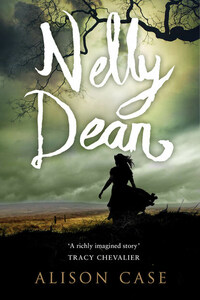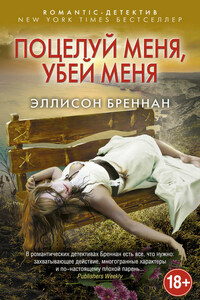The Borough Press,
An imprint of HarperCollinsPublishers
1 London Bridge Street
London SE1 9GF
www.harpercollins.co.uk
First published by HarperCollinsPublishers 2015
Copyright © Alison Case 2015
Cover layout design © HarperCollinsPublishers Ltd 2016
Cover lettering by Alexandra Allden
Cover photographs © Marie Carr/ Arcangel Images (woman); Mark Owen / Trevillion Images (landscape)
Alison Case asserts the moral right to be identified as the author of this work
A catalogue record for this book is available from the British Library
This novel is entirely a work of fiction. The names, characters and incidents portrayed in it are the work of the author’s imagination. Any resemblance to actual persons, living or dead, events or localities is entirely coincidental.
All rights reserved under International and Pan-American Copyright Conventions. By payment of the required fees, you have been granted the non-exclusive, non-transferable right to access and read the text of this e-book on-screen. No part of this text may be reproduced, transmitted, down-loaded, decompiled, reverse engineered, or stored in or introduced into any information storage and retrieval system, in any form or by any means, whether electronic or mechanical, now known or hereinafter invented, without the express written permission of HarperCollins e-books
Ebook Edition © August 2015 ISBN: 9780008123406
Source ISBN: 9780008123420
Version 2016-02-10
Dear Mr Lockwood,
I don’t suppose you’ll be expecting to hear from me, not since I sent you the few bits of things you left behind on your last visit – you’ll remember, the handkerchiefs and your carved walking stick that turned up after you left. I’m not writing about anything like that now – I am sorry to say that we never did find your other pair of spectacles. I think they must have fallen from your overcoat pocket when you were floundering in the snow that night, and got trodden into the mud after it thawed in spring. I turned the house here inside out last month, when we were getting ready for the wedding: every drawer and cupboard emptied, and the carpets and cushions and bedding all taken out to be aired and beaten. I’m sure we would have found them then if they were to be found. And that covers everything that you wrote to me was missing.
There, I said I wasn’t writing about your things, and I have gone and done it anyway. It’s an old habit with me, to get the chores finished off before settling down to a bit of time for myself, and those spectacles of yours have been weighing on my mind like a half-sewn shirt or a half-swept floor. Or a half-told tale.
It’s that I’m writing to you about, Mr Lockwood: the story I told you over those long, dark nights. And about the story I didn’t tell. Don’t mistake me, please, I told you no lies, or not what you would call lies. Or at least – well, we’ll come to that. But there were things I didn’t say, things I couldn’t say, then, and perhaps shouldn’t now. But they’ve weighed on me since, and my mind has kept returning to you listening, and me talking, and I’ve imagined myself again and again telling you all those other things, and you taking an interest in them, as a story, you know, as you did that other tale I told. I half fancied that you might pass this way again, to pay a visit and see for yourself how Hareton and Cathy were coming on, and perhaps you might sit with me by the fire in the sitting room, and I would tell you another story altogether, a homespun grey yarn woven in among the bright-dyed and glossy dark threads of the Earnshaws and Lintons.
So when your letter came about the things you missed, and you wrote that you were to be settling in Italy for your health, I saw that that would never be. And to be honest, even if you had, I could never have told you such a story to your face. But it pleased me to think of it, and as I’ve said, it bothered me a bit, some of the things left out of that other story, till it came to where I sat myself down and started to write. So here I am.
It was a strange thing, telling you that story, hour after hour, pulling myself back into all those times, and sorting and choosing among my memories what to tell and what not. You asked me to tell you everything, to leave out nothing, but of course no one can do that, tell all they’ve seen and heard and felt, and all they’ve known and thought, wondered, and suspected too. And I was so afraid of wearying you! You thought it was a simple thing: you asked for Heathcliff’s story, and I knew it and told it to you, same as I might have told you any current story about the doings of a neighbour here, or one of the tales of folk from the other world that we tell on dark nights. And if somewhere in the middle you’d grown weary and wanted to hear no more of it, why that would be that. Yet the story would be there with me, just the same, though untold. But the story wasn’t there until I told it to you. It wasn’t a story to tell, just a jumble of memories, like pictures in my mind: young Heathcliff tossing his dirty mane from his eyes like a wild moor pony; the two of them standing side by side, sullen and defiant, under one of Joseph’s lectures; or later, Catherine glittering and primping in her new finery; or Heathcliff with that set, frozen look he’d get under one of Hindley’s savage beatings, so that I didn’t know which was the more awful: the baffled rage in Hindley’s red face, that all his wild flailing with strap or stick could wring no cry nor plea from the boy, or the still hatred in Heathcliff’s white one, that promised I didn’t know what – all that came after, it seems to me now.














